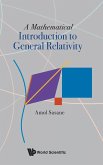Quantum theory is one of the most successful of all physical theories. Our everyday world is dominated by devices that function because of knowledge of the quantum world. Yet many, physicists and non-physicists alike, find the theory which explains the behavior of the quantum world baffling and strange. This book is the first in a series of three that argues that relativity and symmetry determine the structure of quantum theory. That is to say, the structure of quantum theory is what it is because of relativity and symmetry. There are different types of relativity, each leading to a particular type of quantum theory. This book deals specifically with what we call Newton relativity, the form of relativity built into Newtonian mechanics, and the quantum theory to which it gives rise, which we call Galilean (often misleadingly called non-relativistic) quantum theory. Key Features: ¿ Meaning and significance of the term of relativity; discussion of the principle of relativity. ¿ Relation of symmetry to relativity. Significance of the notion of representations of symmetry transformations in formulating a quantum theory. ¿ Representations of Galilean symmetry and how they lead to the most common form of quantum theory. ¿ Extension of Newtonian relativity to accelerating quantum systems and broadened quantum theory.
Bitte wählen Sie Ihr Anliegen aus.
Rechnungen
Retourenschein anfordern
Bestellstatus
Storno









